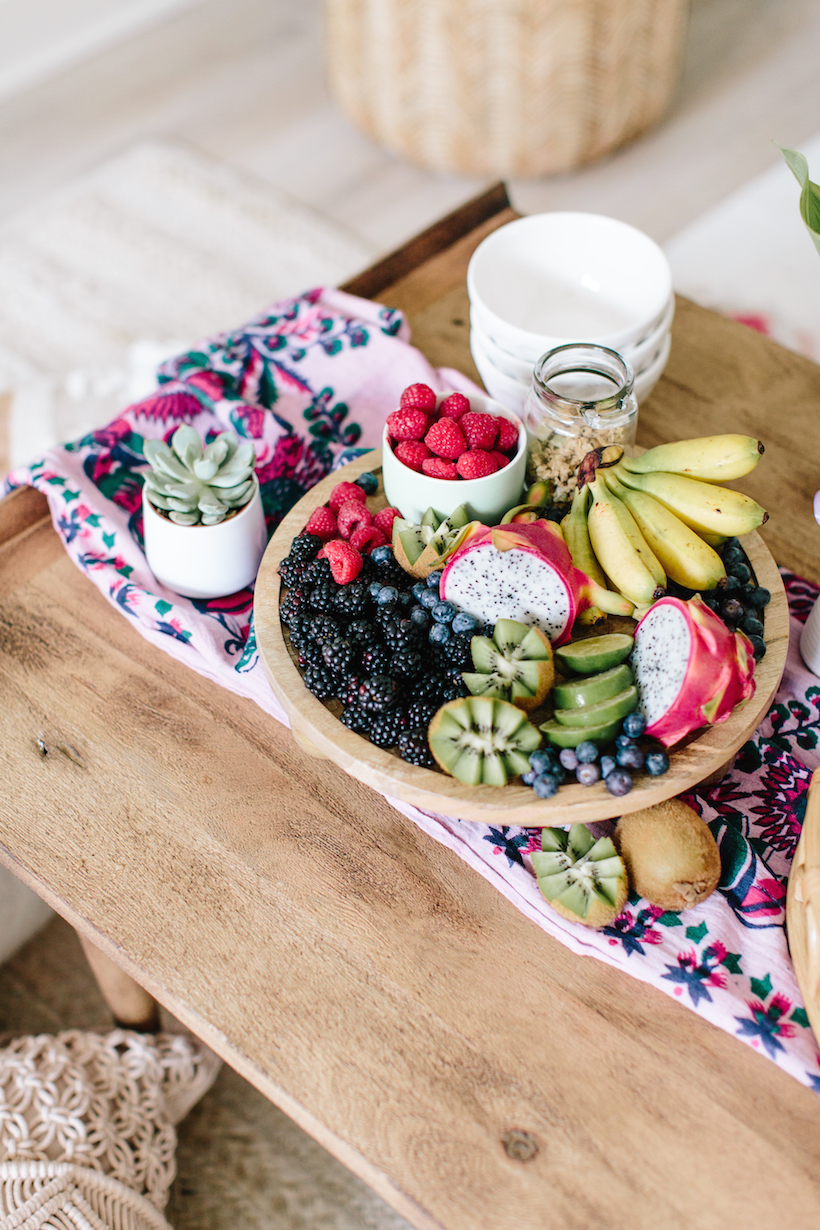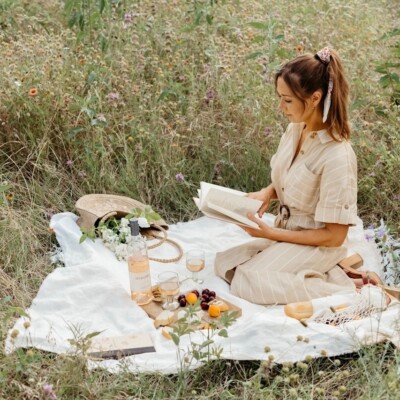The other day, I was flipping through my notes from a recent TED Talks binge, and landed on quotes I’d jotted down from Dan Buettner’s talk on “How to Live to Be 100+.” He and his team spent time studying centenarians (people who live to be 100 or older) and the Blue Zones that many of these people live in. They highlighted Sardinia, Italy; Ikaria, Greece; Okinawa, Japan; Nicoya Peninsula in Costa Rica; and Loma Linda, California. And no, these centenarians didn’t just luck out in the gene pool.
They all have healthy practices and habits that are ingrained into their cultures.
I was so inspired by his talk that I decided to dive in and see if I could incorporate some of these practices into my daily life. If you have a chance to watch the episode (or just listen while you’re driving!), it’s worth it! If not, consider this your CliffsNotes version with just the highlights. Here are four of the key habits practiced by the healthiest people in the world… with some tips on incorporating them into your own life!
featured image by outdoor voices
 image by hannah haston
image by hannah haston
Connect
One of the secrets to the groups’ longevity is their value for a tight-knit community that supports their general life practices and goals. The Framingham study shows that your healthy habits are greatly affected by those closest to you. Buettner says, “If your friends’ idea of recreation is physical activity, if your friends drink a little, but not too much, and they eat right, and they’re engaged, that is going to have the biggest impact over time.”
If you don’t yet, find someone in your life who can support your health goals, whether that’s someone to cheerlead you on in your quest to eat better, meditate daily or exercise more! Take time to connect with people you care about on a consistent basis and be purposeful about slowing down. One fun way could be through starting a bi-weekly or monthly supper club!
 image by outdoor voices
image by outdoor voices
Move Naturally
While none of the groups implement organized exercise methods, they all have lifestyles that promote constant movement. For one: they walk a lot! From frequently walking up and down stairs to socializing by taking walks together, walking is their primary mode of movement. Buettner mentions that “walking the only proven way to stave off cognitive decline.” He also comments that the Okinawans sit on the floor, thus causing them to get up and down 30-40 times a day!
I’m trying to implement more natural movement in my life by taking a 15-30 minute walk outside every day, sans phone, in addition to whatever else I do for exercise that day. That way I know that regardless whether or not I make it to that 5pm barre class I’ll at least get some movement in! Plus, getting out and about outside is a huge mood booster!
 image via darling magazine
image via darling magazine
Live With Purpose
Those in the Blue Zones also have an unmistakable sense of purpose and value time off and rest. Your “why I wake up in the morning” (or “ikigai” as the the Okinawans call it and “plan de vida” as the Nicoyans call it) can work as a strong factor in how meaningful and long your life is. Keeping your goals and priorities top of mind is an amazing way to give purpose to your everyday. I’m loving this trick for “The One Thing” that Camille wrote about recently!
From the Seventh Day Adventists that practice a sabbath to the Okinawans that prioritize ancestor worship, these groups all have one day out of the week to recharge. Studies have found that taking at least one day a week away from work actually makes you more productive and more alert for when you do sit down to work. Honestly, it’s still pretty hard for me to carve out an entire day with absolutely no work of any kind. I’m currently setting aside a 3-4 hr period at least one day a week where I don’t look at my phone and ONLY do things that refresh me. For me some things on that list include taking a walk, a bath, working out if I want to, cooking a fun recipe, reading a book etc.

Eat Well
As Michael Pollan’s saying goes, “eat food, mostly plants, not too much.” Each culture has a different word for this process, but in general, those in the Blue Zones stop eating when they’re 80% full. There is said to be a half hour delay between when your stomach is full and when you brain actually receives that message, so this practice prevents overeating.
While not all of these communities live a completely vegetarian or vegan lifestyle, they do have diets that are mainly focused on plant-based foods! Their diets are rich in vegetables, fruit, whole grains, nuts and legumes. They also limit alcohol and coffee by mostly sticking to water, tea, and a glass of wine here and there. Coffee makes me feel a little crazy, so I’ve gradually switched over to tea in the morning and haven’t looked back! Still having trouble kicking your coffee habit? Check out our lineup of 10 great drinks to start your morning with instead!





